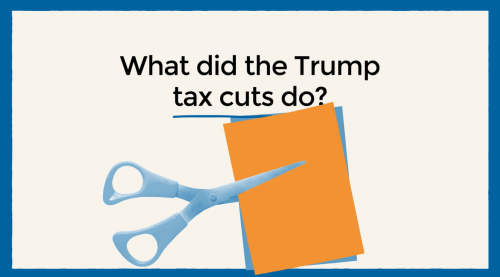One way to judge the 2012 federal budget is to line it up against the economics of sound fiscal policy. Some widely agreed guidelines include: fiscal sustainability is related to the stock of government debt relative to the size of the economy and not just the surplus or deficit; the fiscal deficit or surplus does influence the business cycle and should be either neutral or counter-cyclical but never pro-cyclical; the quality of government spending (measured as a social or economic rate of return on the investment) relative to the cost of taxation is just as important as the scale of that spending.
The fiscal deficit or surplus in a single year is not the main indicator of a country’s success or failure in fiscal policy. A more relevant measure is the stock of government debt relative to gross domestic product. There is ample evidence that when the stock of government debt rises above 60 per cent of GDP increasing amounts of production need to be put aside to service the interest payments on that debt. This problem is reduced to the extent that debt is used to finance activities that pay a higher return than the interest on the debt. But there is a major crisis brewing when the stock of government debt rises above 100 per cent of GDP, which it has in a number of major economies. It becomes increasingly unlikely that a country can economically, socially and politically put aside large parts of production to service that debt, especially if most of the government debt is held by foreigners.
Holders of debt require higher yields to entice them to continue to hold onto debt as it becomes riskier due to apparently unsustainable government debt levels. Interest costs then rise quickly. The critical elements are the size of the debt and the interest costs relative to the growth rate of the economy. The problems in Europe are both excessive borrowing, poor investments using that debt, falling economic growth and punishingly higher risk premiums.
While the stock of gross debt to GDP in many advanced economies is more than 100 per cent of GDP (226 per cent in Japan, 184 per cent in Greece, and 109 per cent in the United States in 2013, according to the Organisation for Economic Co-Operation and Development), it is estimated in Australia the gross stock of government debt to GDP will be 28 per cent in 2013.
Rational economic analysis does not suggest that there is a fiscal sustainability problem in Australia.
However, if the budget is designed to improve fiscal sustainability then it should be judged by the stock of debt relative to GDP in a future year, such as 2016. If the budget shifts spending and taxes across years to generate a surplus in 2012-13 but does not change the stock of debt relative to GDP at some future year, then it should be judged a failure.
The second aspect of fiscal policy that matters is the shift in spending and taxes that influence the business cycle. A rise in a budget deficit during a slowdown is to be expected, just as a rise in a budget surplus is expected during a boom because spending and tax revenue generally move in line with the business cycle. When the fiscal deficit rises during a slowdown this automatically injects demand into the economy and is called an “automatic stabiliser”.
Some economists argue that governments should move even more than the automatic stabilisers to raise spending and cut taxes during a slowdown. That is, they argue that governments should run fiscal deficits when growth is below trend and run surpluses when growth is above trend. This philosophy partly drove Australia’s fiscal policy during the 2009 global financial crisis. Other economists argue that the government should not use fiscal policy proactively this way and they should only allow the fiscal stabilisers to work but do no more.
But no serious economist argues that fiscal policy should be used to accentuate the business cycle and to make economic slowdowns even more severe. Thus from a counter-cyclical fiscal policy position, the budget will be a success if it is at least neutral or to some extent anti-cyclical. It will be a failure if it is pro-cyclical; that is, removes demand from the economy when the economy is forecast to slow relative to trend. This policy would accentuate the business cycle and cause excessive economic losses in future years.
The third aspect of good fiscal policy is whether government spending yields a higher rate of return than the cost of funding this spending and whether the taxes that generate revenue lead to the lowest cost in terms of deadweight loss for the economy. Thus the economic criteria behind the choice of spending cuts and tax revenue increases will be critical. One hopes that there is a rigorous economic analysis of where changes in taxes and spending give the greatest benefit to the Australian people.
From the announcements to date the Australian government appears to show a lack of understanding of what good fiscal policy should look like. If fiscal policy is seen clearly to be pro-cyclical because the government has a large fiscal contraction when it is forecasting a slowing in the economy below trend growth, then it fails on the second criteria. And if the tax increases have large deadweight loss and the spending cuts have large economic costs because high return activities, such as infrastructure and education, are cut, then the budget will also be a failure of economic leadership.
The main question is, why do financial markets need to be persuaded that the government can manage a debt to GDP ratio of 28 per cent even though this is the second-lowest in the advanced world? It is not whether there is a surplus in 2012-13 that drives Australia’s fiscal credibility, but whether the government shows an understanding of the broad principles of sound fiscal policy.
The problem with the entire fiscal debate in Australia today is that many economic concepts have been spun so far they have lost meaning. There is serious economic damage being caused by attempting to reach political goals with no economic rationale. This is as true about the budget deficit debate as it is about the carbon tax pledge, where the world carbon price is now much lower than was forecast. Bad policy based on political motives increases uncertainty in the economy and damages investment and growth. Australians deserve policies that achieve national interest goals at least economic cost, not political goals no matter what they cost.
The unfortunate irony for the government this time around is that any macro-economic mistakes made in this budget will probably come home to roost in the run-up to the next election in 2013. The seeds of the next economic disaster are usually sown in the short term response to a current political problem. Examples abound in recent years, but none more clearly than the promise to run a surplus in 2012-13 no matter what this means to Australia.



Commentary
Op-edAustralia’s Labor Sowing Seeds of Its Own Destruction
May 7, 2012